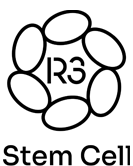NK For Cancer
Renal Cancer
Natural KILLER CELL THERAPY
Clinical Protocol with Natural Killer Cells for Renal Cancer

Renal cell carcinoma (RCC) is the most common type of kidney cancer in adults, accounting for approximately 85% of diagnoses. This type of cancer develops in the proximal renal tubules, and about 70% of RCCs are composed of clear cells.
Other less common types of kidney cancer include urothelial carcinoma, sarcoma, lymphoma, and Wilms tumor, the latter being the most common kidney cancer in children.
Renal cell carcinoma (RCC) is a major health problem with a mortality rate of approximately 25% at diagnosis. This is attributed to the fact that 40% of patients present with or develop metastatic disease, and the efficacy of available treatments such as chemotherapy and radiotherapy is suboptimal. Survival is improved with surgery combined with cytokine therapy, but response rates have not exceeded 20%. Suppression of anti-tumor immunity by RCC likely imposes functional limitations on the effectiveness of immunotherapy.
Natural Killer (NK) Cells
NK cells and their role in renal cell carcinoma
Several studies have confirmed the importance of the presence of NK cells in RCC, proving to be a critical component of the antitumor response, given the association between their infiltration and patient survival. NK cells also infiltrate lung metastases in RCC, and a high number of NK cells have been observed to be associated with better survival.
However, despite NK cell infiltration, tumors can continue to grow, indicating that the tumor microenvironment (TME) negatively affects NK cell functionality. It is well known that there is an immunosuppressive state in the TME that affects, among others, NK cells. Therefore, NK cells infiltrating clear cell RCC have an altered phenotype and poor degranulation activity compared to circulating NK cells and those from non-tumorous renal cortices.
Natural killer cells as a prognostic factor
Immunotherapy with Natural killer cells
There are currently over 30 clinical trials under development using NK cells with different technological strategies: from autologous NK to genetically modified cells (CAR-NK). Most of these have yielded important results in the control and restriction of metastatic processes. However, further research is still required.
Recommended treatment scheme
The general treatment scheme starts at 2-5 million per kilogram of patient, but it directly depends on the patient’s general condition and the stage of progression.
Thus, the following scheme represents a basic treatment for an initial/intermediate stage.
- 3 applications (100 million) of Natural Killer cells
- Weekly application of 100 million for 3 weeks, or 3 infusions over a 5 day period.
Selection and application of NK cell immunotherapy
Once the patient’s complete medical history and review have been completed, and the therapeutic regimen has been determined, the informed consent letter is provided to be signed and an appointment is provided to begin the therapy.
Application process
- The application appointment takes place in R3’s clinics in Tijuana Mexico or Islamabad Pakistan, where the patient is invited to take a comfortable position and the IV is placed in the arm.
- The drip is regulated to deliver 100 mL of saline solution in 30-40 minutes.
- Once the dose is finished, the IV equipment is removed.
- The patient is left to rest and under medical observation for 20 minutes.
- The doctor in charge of the area or nursing staff is present throughout the procedure.
Adverse Effects
Regimes of 2-5 million cells per kg have occasionally been associated with:
- Low-grade fever
- Headache
- Fatigue
- Dizziness
Follow-Ups:
It is recommended to perform laboratory and office tests within 10 days of completing the first application regimen, or at least 2 months after the first application.
R3 Stem Cell is the leader in both autologous and allogeneic Natural Killer Cell therapy. Contact us today to set up your free consultation!
Bibliography
Terrén I, Orrantia A, Mikelez-Alonso I, Vitallé J, Zenarruzabeitia O, Borrego F. NK Cell-Based Immunotherapy in Renal Cell Carcinoma. Cancers (Basel). 2020;12(2):316. Published 2020 Jan 29. doi:10.3390/cancers12020316.
Guan Y, Chambers CB, Tabatabai T, et al. Renal cell tumors convert natural killer cells to a proangiogenic phenotype. Oncotarget. 2020;11(26):2571-2585. Published 2020 Jun 30. doi:10.18632/oncotarget.27654
Ziblat A, Iraolagoitia XLR, Nuñez SY, et al. Circulating and Tumor-Infiltrating NK Cells From Clear Cell Renal Cell Carcinoma Patients Exhibit a Predominantly Inhibitory Phenotype Characterized by Overexpression of CD85j, CD45, CD48 and PD-1. Front Immunol. 2021;12:681615. Published 2021 Jun 4. doi:10.3389/fimmu.2021.681615
Lim, Okjae et al. “Present and Future of Allogeneic Natural Killer Cell Therapy.” Frontiers in immunology vol. 6 286. 3 Jun. 2015, doi:10.3389/fimmu.2015.00286
Lupo KB, Matosevic S. “Natural Killer Cells as Allogeneic Effectors in Adoptive Cancer Immunotherapy.” Cancers (Basel). 2019 Jun 3;11(6):769. doi: 10.3390/cancers11060769. PMID: 31163679; PMCID: PMC6628161.
